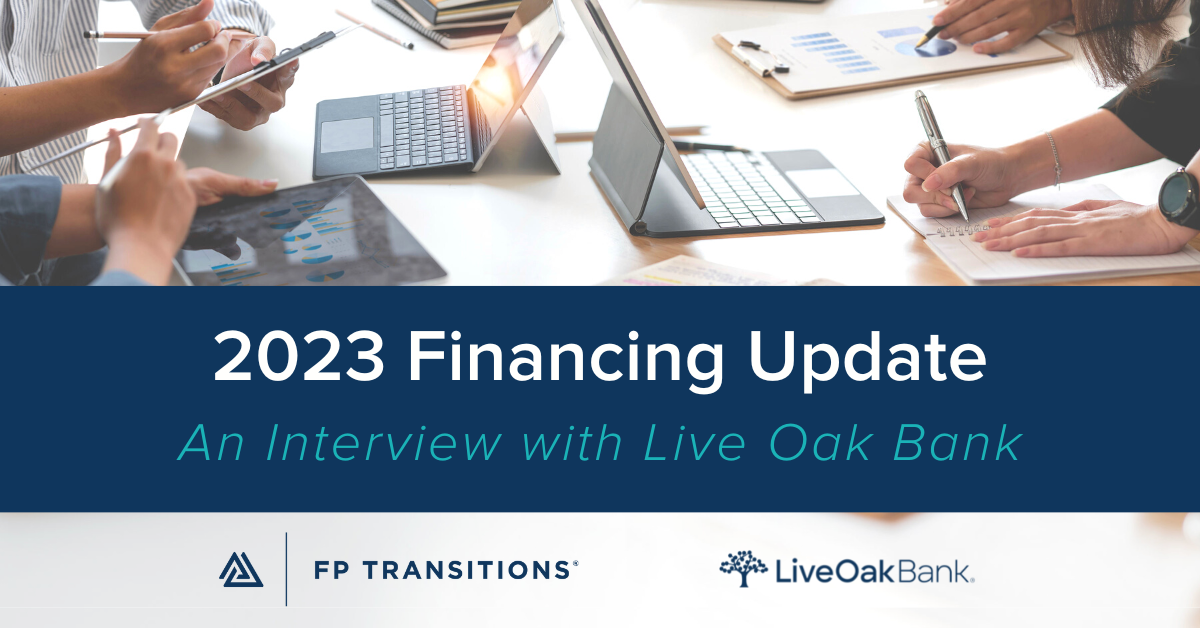Value is the starting point for everything you want to do for your business in terms of growth, protection, sustainability, and more. It provides a starting point for your plans and informs important decisions, but depending on what you’re trying to do, value can play a variety of roles in your strategy.
The determination and use of your valuation always comes down to the purpose and the circumstance. Let’s look at the four main areas where your valuation plays a starring role: growth and planning, M&A and external sales, equity ownership, as well as protections and legal documentation.
Four Areas Where Valuation Plays a Critical Role
Topics: M&A, Business Value, valuation
Valuing Your Life's Work
The Wicked Pissah Podcast, brought to you by the Financial Planning Association of New England (FPA® of New England), features discussions for financial professionals including topics of financial planning, recent or future events in the financial services industry, and interactions with influential speakers from across the industry.
Topics: Business Value, Benchmarking, valuation
Purpose, Perspective, Premise — the Three Ps of Business Valuation

Purpose, perspective, and premise are the foundations of business value. With these three key aspects we can weigh an incredible amount of detail and data to determine the most accurate value of the business–for any circumstance. The more accurate the value, the better the outcome of your situation, and the better your ability to plan ahead for future growth and higher profits.
Everything starts with “why.” What is the purpose for the valuation? As we like to say, “value is in the eye of the beholder,” and purpose allows us to pinpoint that perspective to know what makes a business valuable to them. And when we drill down into situational specifics and the nuances of perspective, we can understand the future-state of the business and the premise of the valuation to fine tune its accuracy.
Topics: Succession Planning, Business Growth, Business Value, Benchmarking, Valuation & Appraisal
Top 10 Drivers of Business Value
/Blog%20Header%20-%20Top%2010%20Drivers%20of%20Business%20Value%20(1).png?width=1200&height=628&name=Blog%20Header%20-%20Top%2010%20Drivers%20of%20Business%20Value%20(1).png)
The value of your practice is determined by many factors, some obvious, and some not so obvious. And the degree to which some aspects impact your value more largely depends on the reason you’re valuing the business in the first place.
Whether you’re considering acquisition, onboarding new talent–or new owners–, monitoring annual growth, or getting ready to sell, these ten factors have the most significant impact on the value of your business. Focus in these areas can make a major difference in your book’s sustainability and its eventual purchase price when transition time arrives.
Topics: Business Growth, Business Value, Buying & Selling, Sustainability, Benchmarking, Valuation & Appraisal
Price, Not Value, Is a Product of Negotiation
Price is usually the most difficult hurdle for buyers and sellers to overcome. The value of a business is different for each party participating in a transaction and is based on opinion and the specific set of circumstances for each individual. Price, on the other hand, is the number at which the transaction is executed. Yes, value informs price, but it is not the only influencer. Price is also the result of good faith negotiations between buyer and seller. While negotiation does not necessarily impact each party’s perception of value, it allows for dialogue so that both sides arrive at a price where the value for each individual overlaps and a mutually beneficial deal can be struck.
Topics: Selling Your Practice, Acquisition, M&A, Business Value, Deal Structure, Buying & Selling, Mergers
Ideas Without Action? You’re Not Alone.
.png?width=1200&height=628&name=Procrast%20Blog%20(1).png)
Great opportunity comes often with great risk. But just as importantly, and far more prevalently, everyday challenges wear on us, too. How many times have you had the same conversation with a client about opening that 529? Or upping that 401k contribution? They want to do it – so they say – but they keep showing up for meetings without having done it.
Topics: Succession Planning, Business Value, Transition Plan, Continuity, Sustainability, Leadership, Valuation & Appraisal, KPI, marketing, valuation
Tips for Increasing Firm Value
You invest a substantial amount of energy into running, growing, and evolving your business. Knowing when, where, and how to best direct your efforts could mean the difference in thousands, or even millions, of dollars long-term. Having spent two decades accruing and organizing essential datapoints on more than 15,000 businesses, we’ve got a tight grasp on what matters most at each step of the way.
Depending upon your goals, certain areas will move the needle faster than others. Rather than guess at the best use of your limited resources, our team has compiled a list of places where your ownership and C-Suite team can start assessing opportunities for increased firm value.
Topics: Selling Your Practice, Business Growth, M&A, Revenue Strength, Business Value, Revenue Sharing, Multiples, Benchmarking, Valuation & Appraisal, KPI
2023 Financing Update - An Interview with Live Oak Bank
We’re coming off an incredible year from mergers and acquisitions yet again. In fact, we closed out 2022 as one of our greatest ever for FP Transitions, and the same goes for Live Oak Bank. We took a moment to reconnect with James Hughes, SVP of Advisory Lending for Live Oak Bank, to break down the key areas advisors should consider before they enter the 2023 mergers and acquisitions environment.
Topics: Acquisition, M&A, Business Value, Deal Structure, Financing, Bank Financing, Buying & Selling, State of the Market, Next Generation, Valuation & Appraisal, "Buying, Selling, and Valuing Financial Practices", Sell and Stay™, Trends
7 Acquisition Tactics You Can Implement Today

I rarely meet a financial advisor who doesn’t immediately mention that they want to buy a practice. It seems to be every advisor’s goal. Of course it is. And in my fifteen years in the industry, I have seen why.
One of the fastest ways for a firm to grow is to acquire another book of business. However, the process is more nuanced and competitive than most advisors seem to think. Most assume they will figure it out as they go along. If you take the unguided DIY approach, however, mistakes will be made–perhaps big ones–and you’re likely to leave money on the table. Our EMSTM
Professional members know this more than anyone, which is why they've engaged our experts to help them prepare and achieve their acquisition goals.
Like every aspect of business ownership, acquiring a book of business takes advanced consideration and preparation. These are a few steps you should be taking now, prior to developing and executing your acquisition strategy.
1. Develop Your Buyer Profile
Membership to fptransitions.com is free. We don’t believe there should be a series of hoops to jump through before you can explore the largest open market of M&A opportunities; or even to access our library of business building, acquisition, and succession resources.
Step one to taking advantage of your fptransitions.com membership is to complete your buyer profile. This series of basic questions gives the team at FP Transitions an overview of your company and team so we can best help you find acquisition opportunities that would be a good fit.
Pro tip: FP Transitions uses the information provided in your profile to search our database of 25,000+ advisors to find the right buyers for private sales, continuity partner matching, and successor searches.
The buyer profile is your opportunity to offer information that makes you stand out from your peers. The Practice Description field especially. If you offer a few concise thoughts on what makes your practice unique, you’re already setting yourself apart.
Topics: Acquisition, Business Growth, Business Value, Continuity Partner Matching
Maximizing Key Drivers For Business Revenue and Growth
For many years, our data has shown that firms with over $2M in annual revenue tend to grow twice as fast as those with $250K in annual revenue. Contrary to how it might seem, this is actually a function of their structure, not necessarily their size. These firms have cultivated efficiencies in cash flow, capacity, expenses, and operational systems to support scalability and growth. These sophisticated structures are accessible to most businesses–in a wide range of revenue levels–if they’re willing to explore and dedicate time and resources to improve.
Topics: Business Growth, Business Value, Client Retention, Benchmarking


